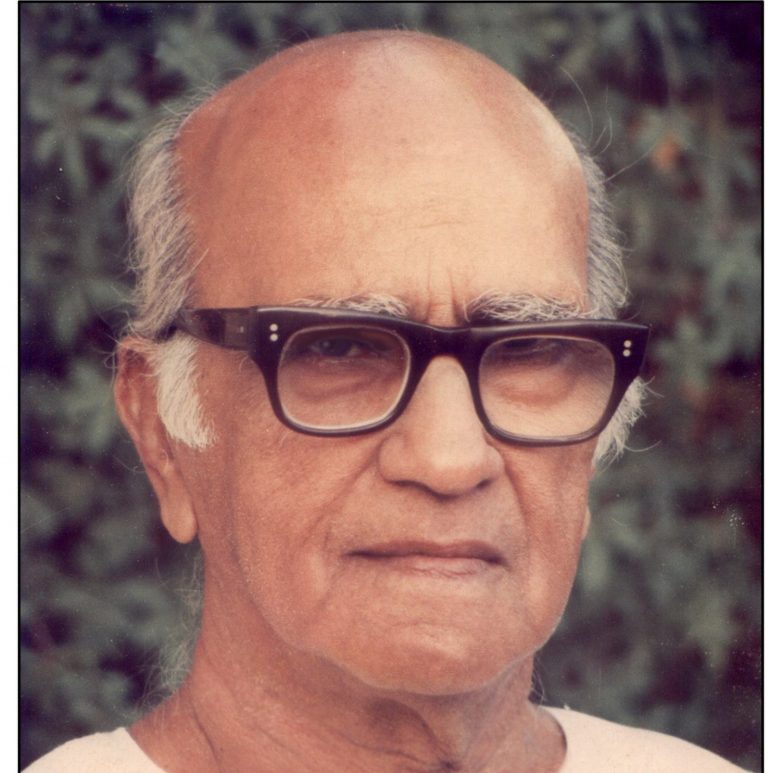
Uttam continued writing literature from 1941 till his last day in 2005. He displayed organizational abilities and literary skills at a young age even before completing his matriculation in 1942. He organized the Hyderabad Student Union in 1941 and participated in Quit India movement and courted one year imprisonment on 9th August.
Shri A. J. Uttam was an outstanding writer, critic, and research scholar, journalist, very well known for consistent, well studied and documented opinion. In fact, he was called the walking, talking and living encyclopedia of Sindhi literature. He was continuously writing literature from 1941 till his last day in 2005. Not only that, but he was always in the forefront of movement for recognition of Sindhi Language by Government and encouragement of new writers and cultural workers through Naeen Duniya Monthly, Sindhu Dhara Weekly, Sindhu Samachar and Sindhu Sansar Dailies as an Editor and as part of Akhil Bharat Sindhi Boli Ain Sahit Sabha of which he was the Founder General Secretary from 1959 to 1963. In fact, he was the only writer who resigned and sacrificed his Bombay Govt. job in 1960 (on bifurcation into Maharashtra and Gujarat) instead of accepting a transfer to Gujarat in order to continue to work for Sindhi language, literature and culture unhindered.
Shri A. J. Uttam (Assandas Jethanand Uttamchandani) was born on 16th December 1923 in Hyderabad – Sindh (now in Pakistan).
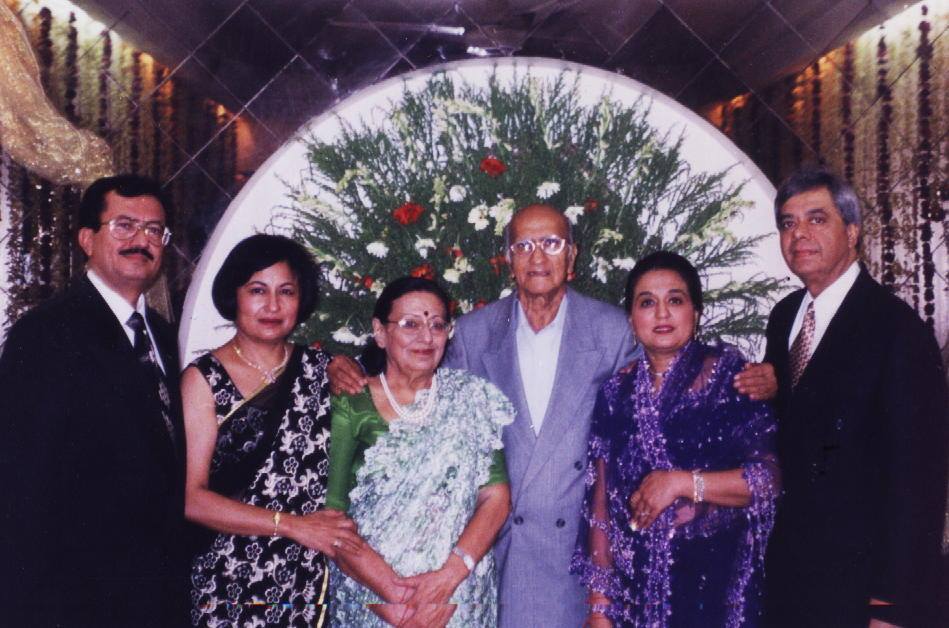
He displayed organizational abilities and literary skills at a young age even before completing his matriculation in 1942. He organized the Hyderabad Student Union in 1941 and became its Gen Secretary. In 1942, after passing matric and joining college, he participated in Quit India movement and courted one year imprisonment on 9th August.
In 1941, he had already started writing short stories, essays and research articles on literature and criticism and some were published in daily and weekly newspapers. He contributed to Phuleli the college magazine of D. G. National College and was elected its editor in 1946-47.
He formed a progressive writers group in 1946 in Hyderabad – Sindh, which held weekly literary study classes in which famous writers like Lekhraj Aziz, Professor M. U. Malkani, Tirth Basant, Prof. Gehimal Mulchandani and Kalyan Advani & revolutionary poet Haider Bux Jatoi and others participated/attended. Here he also interacted with other progressive artists like A.K. Hangal, Gobind Malhi, Shaikh Ayaz, Anand Golani and others.
After migration to India, he got a job in Bombay Secretariat in the same year. But he continued to work for Sindhi language and culture through Sindhi Sahit Mandal and Naeen Duniya monthly, which according to Prof. M. U. Malkani “gave rebirth to Sindhi literature in India”. On bifurcation of Bombay into Maharashtra and Gujrat, he resigned the job and refused to accept a transfer to Gujrat State to serve the cause of Sindhi language, literature and culture in Bombay.
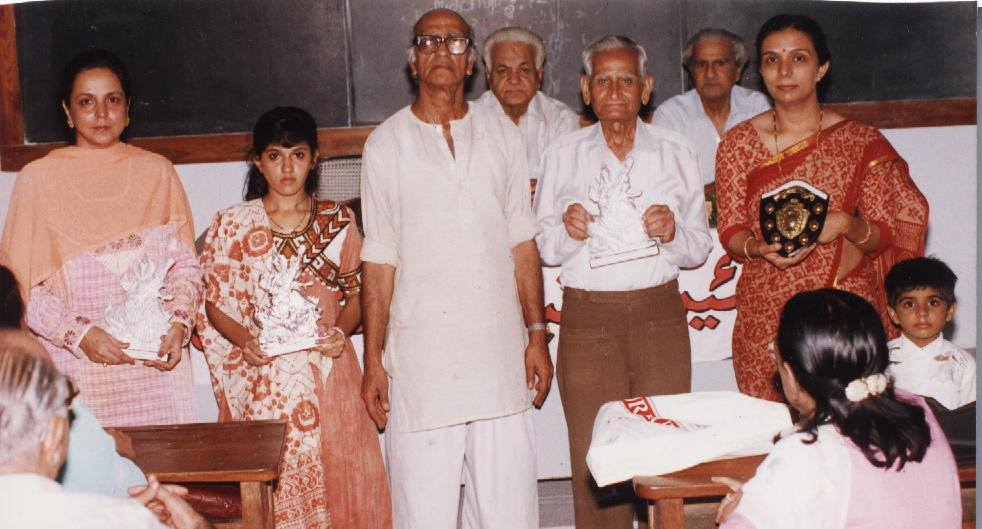 A. J. Uttam was one of the pioneers of the first premier literary and cultural organization – “Sindhi Sahit Mandal” which was formed in January 1949 under the presidentship of Prof. M. U, Malkani in Bombay, the well-known dramatist and Historian. A. J. Uttam held the post of General Secretary and Vice President. The Sindhi Sahit Mandal eventually evolved as the center of Sindhi literary and cultural activities. It started the Sindhi language recognition movement in 1952 with five writers committee including Mr. A. J. Uttam.
A. J. Uttam was one of the pioneers of the first premier literary and cultural organization – “Sindhi Sahit Mandal” which was formed in January 1949 under the presidentship of Prof. M. U, Malkani in Bombay, the well-known dramatist and Historian. A. J. Uttam held the post of General Secretary and Vice President. The Sindhi Sahit Mandal eventually evolved as the center of Sindhi literary and cultural activities. It started the Sindhi language recognition movement in 1952 with five writers committee including Mr. A. J. Uttam.
In 1956, Prof. M. U. Malkani took Mandal’s delegation to Delhi at Asian Writers Conference, inaugurated by Jawaharlal Nehru. Prof. Malkani (President) and A. J. Uttam (Vice President) and others met Rashtrapati for recognition of Sindhi Language (which was not included in the constitution in 1950). Sindhi was recognized from 1957 for Sahitya Academy Awards and Radio Programs till today.
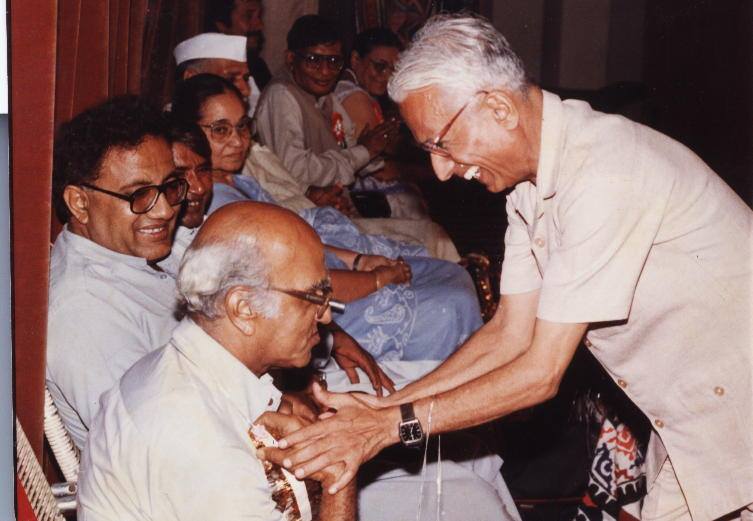 Naeen Duniya, a progressive monthly magazine, was started in India after partition in 1948 by Biharilal Chhabria and Uttam worked as a co-editor from 1950. From 1957 till his untimely death in 2005, he continued to publish Naeen Duniya as its whole and soul, wherein, he had published over 500 original stories, over 1000 poems, 200 essays and dramas, and published 100 books. Uttam had inspired and encouraged new writers through Naeen Duniya, always giving them remuneration (unheard of in those days) and above all due recognition. This was his unique contribution to Sindhi Literature & culture.
Naeen Duniya, a progressive monthly magazine, was started in India after partition in 1948 by Biharilal Chhabria and Uttam worked as a co-editor from 1950. From 1957 till his untimely death in 2005, he continued to publish Naeen Duniya as its whole and soul, wherein, he had published over 500 original stories, over 1000 poems, 200 essays and dramas, and published 100 books. Uttam had inspired and encouraged new writers through Naeen Duniya, always giving them remuneration (unheard of in those days) and above all due recognition. This was his unique contribution to Sindhi Literature & culture.
Along with Naeen Duniya, he was co-editor of Sindhu Dhara, a weekly started in 1959 to 1967. Few people can sacrifice their career and ambitions and work with dedication and commitment for promotion of Sindhi Language and Culture.
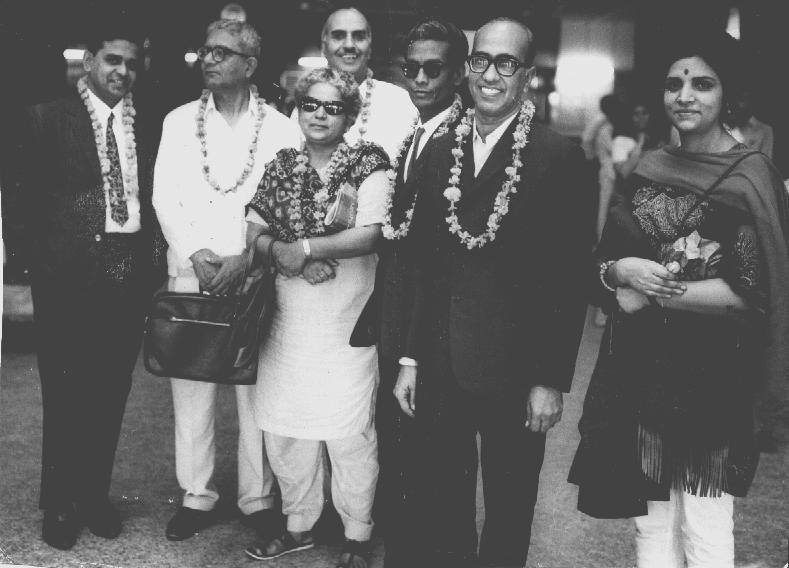 From 1960 till his last day in life, Uttam devoted his full time, energy resources and capabilities for promotion of Sindhi literature, language and culture. Initially, it was through Naeen Duniya and Sindhu Dhara, thereafter through the All India organization Akhil Bharat Sindhi Boli Ain Sahit Sabha formed in 1959. He became the Founder General Secretary of the Sabha and was re-elected at Sammelans as the General Secretary in 1960, 1961, 1962, 1963 and later 1970, 1971, 1972 and 1973. He galvanized the Sabha into a truly central representative organization of Sindhis for Sindhi language in [Sindhi] Arabic script. The crowning success of all efforts was the inclusion of Sindhi in the eighth schedule of the Constitution in 1967 after 16 years of struggle and hard work by all, which was not included in the Constitution in 1950.
From 1960 till his last day in life, Uttam devoted his full time, energy resources and capabilities for promotion of Sindhi literature, language and culture. Initially, it was through Naeen Duniya and Sindhu Dhara, thereafter through the All India organization Akhil Bharat Sindhi Boli Ain Sahit Sabha formed in 1959. He became the Founder General Secretary of the Sabha and was re-elected at Sammelans as the General Secretary in 1960, 1961, 1962, 1963 and later 1970, 1971, 1972 and 1973. He galvanized the Sabha into a truly central representative organization of Sindhis for Sindhi language in [Sindhi] Arabic script. The crowning success of all efforts was the inclusion of Sindhi in the eighth schedule of the Constitution in 1967 after 16 years of struggle and hard work by all, which was not included in the Constitution in 1950.
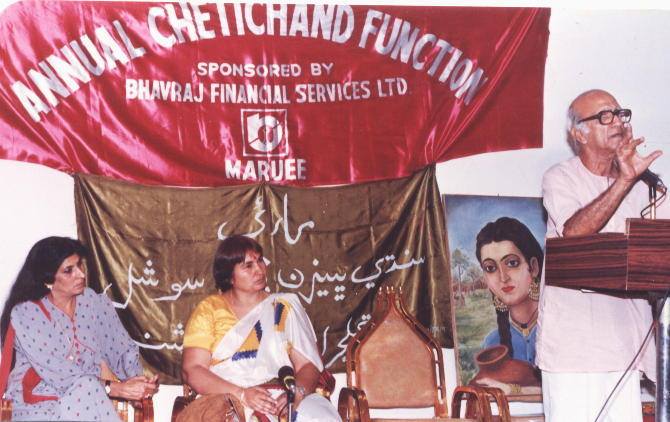 Many monthly publications of Naeen Duniya can be classified as Collectors Issues specially focused on literature and writers. He also edited special issues of weekly Jhulelal, (Ahmedabad) for many years.
Many monthly publications of Naeen Duniya can be classified as Collectors Issues specially focused on literature and writers. He also edited special issues of weekly Jhulelal, (Ahmedabad) for many years.
With the special issues of Naeen Duniya, he became so popular in Sindh, that he was invited to visit Sindh to attend Shah Latifs Annual Urs in 1964. There he met top most writers and educationalists. After his personal visit to Sindh he was called the Bridge of Sindh & Hind. He edited special issues of Dharmyug & Sarika on Jeay Sindhi in 1972.
In 1973, A. J. Uttam was invited to the World Writers Conference in Russia, before that also he went to Russia in 1972 after getting Soviet Land Nehru Peace Prize, where he came in personal contact with Marathi Peoples Poet Narayan Surve and other famous Indian writers like H. R. Bachchan, Bhisham Sahni, and Bengali writer Subhash Mukherjee. There he met famous Urdu writers Faiz Ahmed Faiz, Sajjad Zaheer and Chilean Nobel Prize Poet Pablo Naruda. There he saw the love of Russians for India esp. for Gandhiji, Nehru & Smt. Indra Gandhi.
A. J. Uttam was editor of Sindhi Dailies – Sindhu Samachar from 1973 to 1975 and thereafter Sindhu Sansar from 1975 to 1978. It became very popular and was appreciated by all.
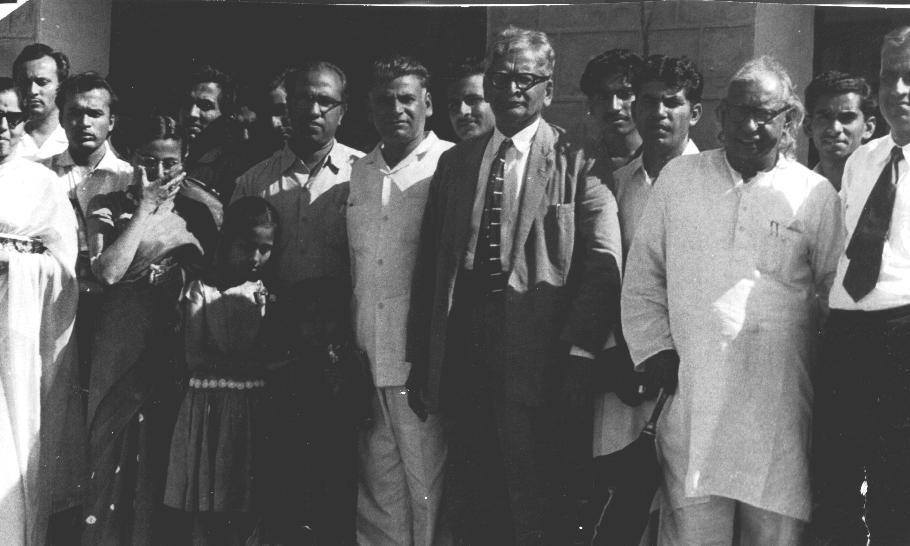 Our oldest writer, Prof. M. U. Malkani, wrote in his opinion in Sindhu Sansar on 16-01-1978, ‘In young Sindhi writers, Uttam is my earliest friend. I have noticed that behind his serious nature, a sensitive heart is hidden which is now revealed after he has started his daily (Sindhu Sansar). His news on the sorrowful incidents of the world are so full of pathos which show his love for humanity. The basis of his socialism and progressivism is that love for humanity which an English poet has called the Milk of Human Kindness. His editorials are exemplary and full of weighty arguments which give testimony of his mature and ripe personality. Their special quality is that they are impartial, which helps the readers to form their opinions. The main thing is that wherever the question of the progress of Sindhi Community, he will discuss extensively. Therefore Sindhu Sansar has really become the medium of the ideal Sindhyat. His language is rich in flavor, with idioms from which many Sindhis can learn a lesson’.
Our oldest writer, Prof. M. U. Malkani, wrote in his opinion in Sindhu Sansar on 16-01-1978, ‘In young Sindhi writers, Uttam is my earliest friend. I have noticed that behind his serious nature, a sensitive heart is hidden which is now revealed after he has started his daily (Sindhu Sansar). His news on the sorrowful incidents of the world are so full of pathos which show his love for humanity. The basis of his socialism and progressivism is that love for humanity which an English poet has called the Milk of Human Kindness. His editorials are exemplary and full of weighty arguments which give testimony of his mature and ripe personality. Their special quality is that they are impartial, which helps the readers to form their opinions. The main thing is that wherever the question of the progress of Sindhi Community, he will discuss extensively. Therefore Sindhu Sansar has really become the medium of the ideal Sindhyat. His language is rich in flavor, with idioms from which many Sindhis can learn a lesson’.
In 1984, Uttam went to Japan where his daughter Bina is settled. And there in Hiroshima, he saw the havoc played by Atom Bomb blasts by USA Imperialists. On return, he went to Hong Kong and China. There he saw 2-3 temples with Buddha’s statues like those in India.
A. J. Uttam has written about 100 short stories some are in two books Kashmkash and Hoo Jehan hi Manu. Some of his stories are published not only in India but also outside India in other languages and also in Sindh, Russia and Germany.
Uttam has about 25 books of essays to his credit. All these contain critical appreciation of classical writers like Kalidas, Meera Bai, Guru Nanik Dev, Shah Latif, Sami, Sachal, Tagore, Munshi Premchand, Sharat Chander, Sant Gyaneshwar, Mahatma Gandhi, & Lenin. His other famous book of Sindhi Kahani “Nataku Ain Tankida” contains historical & critical evaluation of stories, drama and criticism. He had written three monographs on biography & works of M. U. Malkani & Lekhraj Aziz – 1985, Kalyan Advani – 2002.
Some of his books are prescribed for BA and MA students in the University for their Courses.
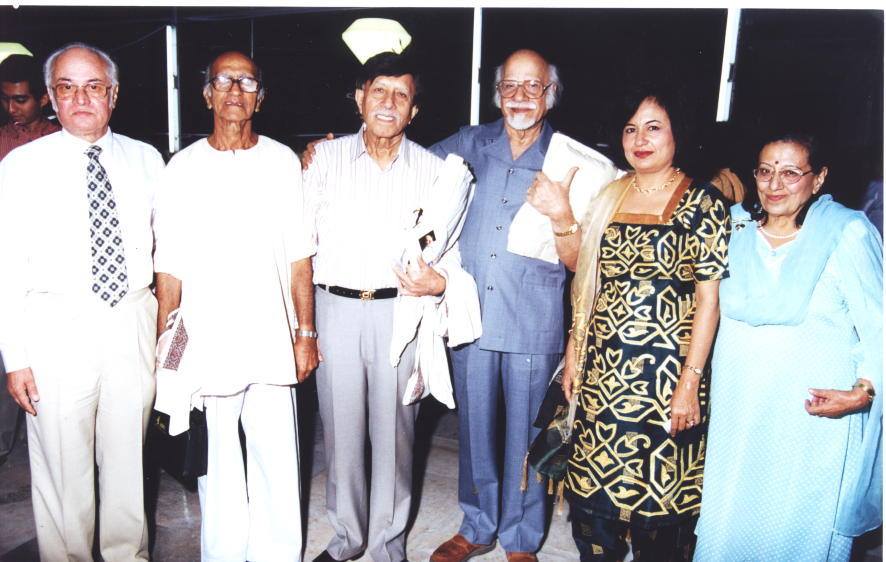 In sixty years of literary and cultural career, Uttam was honored and bestowed many cash awards: Rs. 5000/- For indo soviet Friendship (with trip to Russia in 1970), Rs. 5000/- by Jiya Sindhi Sabha -1974, Rs. 10000/- by Priyadarshini in 1991, Rs.10000/- by Akhil Bharat Sindhi Boli Ain Sahit Sabha in 1991, Rs.5000/- Ram Buxani foundation 1991. Uttam invariably handed over these cash awards to the people and institutions for their service to Sindhi language & literature.
In sixty years of literary and cultural career, Uttam was honored and bestowed many cash awards: Rs. 5000/- For indo soviet Friendship (with trip to Russia in 1970), Rs. 5000/- by Jiya Sindhi Sabha -1974, Rs. 10000/- by Priyadarshini in 1991, Rs.10000/- by Akhil Bharat Sindhi Boli Ain Sahit Sabha in 1991, Rs.5000/- Ram Buxani foundation 1991. Uttam invariably handed over these cash awards to the people and institutions for their service to Sindhi language & literature.
In 2002, Uttam was given an award Rs.25000/- by Akhil Bharat Sindhi Boli Ain Sahit Sabha for his unique contribution to Sindhi language & literature.
Uttam was honored with special shield by Progressive Writers Association at the Golden Jubilee meet at Lucknow in 1986, with Gold medal in 1994 by Maruee Organization, Delhi. He was also honored by Deputy PM, L. K. Advani in 1999 at the conference called by Indian Institute of Sindhology at Gandhidham.
It will be seen that as stated by Prof. M. U. Malkani, Uttams study was very deep about Sindhi language, literature and culture for which purpose, he had collected thousands of Sindhi old and new books. He had a very good library of Sindhi books, which very few institutions in India have. Many people came to him for books and advice on Sindhi Literature.
In 2002, well known writer Rukmini Chainani compiled a book on Uttam Sindhyat Jo Upasak containing numerous articles on Uttam , a real Tribute to Uttam.
__________________
Courtesy: AJUTTAM Website